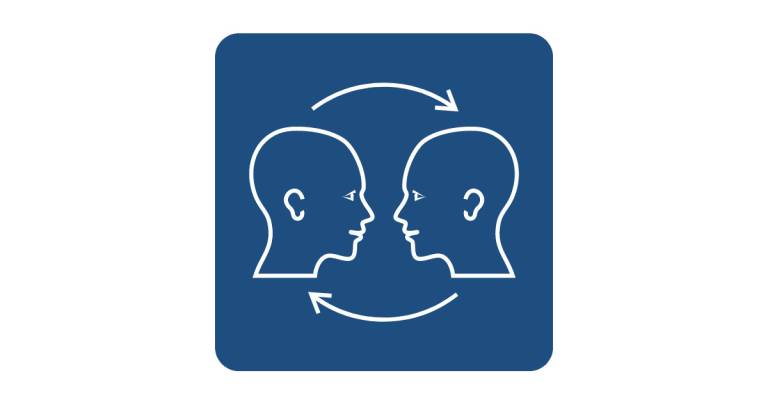Department of Imaging Neuroscience Joins the Communication Access UK Scheme
24 October 2023
The Department of Imaging Neuroscience (UCL Queen Square Institute of Neurology) has become accredited under the Communication Access UK (CAUK) Scheme to improve their ability to support those with communication difficulties, including research participants, visitors and staff.

Communication is not only about our ability to talk with others, but also to listen and comprehend what others are saying. Some people may find it difficult to ask questions, or ask for help, others may struggle to be understood. Communication difficulties can relate not only to speech, but information processing, reading, and writing comprehension.
At the Department of Imaging Neuroscience, we investigate neurological and psychiatric disorders. Communication difficulties can be a symptom of many of these disorders, and therefore many of our research participants may experience communication support needs, as may other visitors and staff members. To improve our ability to support those with communication difficulties, the Department of Imaging Neuroscience at UCL has become accredited under the Communication Access UK (CAUK) Scheme.
CAUK is an initiative developed in partnership with charities and organisations that share a vision to improve the lives of people with communication difficulties. The programme works closely with businesses, public institutions, and community organisations to provide training to staff and volunteers. It is designed to create environments that are accessible and inclusive for people with communication difficulties, and to break down barriers to effective communication, enabling everyone to engage fully in their communities.
As part of our accreditation under this scheme, over the coming months, the Department will roll out e-learning training, where staff will gain the skills and confidence to engage with individuals with communication difficulties more effectively. We will also circulate a survey to determine what support participants, visitors, academic and professional services staff may need. This information will then be used to shape what kinds of changes the department will implement. The roll-out of the scheme locally is being led by Rachel Bruce (Language Group) and Joanne Thomas (Chair of EDI Committee, Public Engagement Manager), supported by the EDI Committee and members of the PLORAS Team.
By becoming ‘Communication Accessible’, the department will be able to display the Communication Access Symbol, a new disability access symbol. By providing a visual indicator of our accessible environment, we aim to empower everyone engaging with the Department to be able to share their communication needs going forwards, and feel able to engage with the Department with more confidence.
 Close
Close

